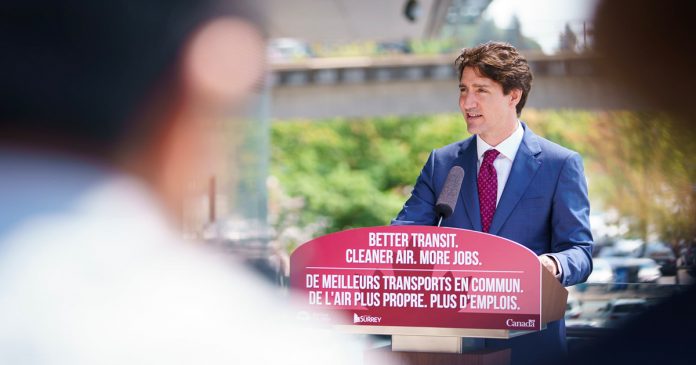Some Canadians really, really, really dislike Justin Trudeau.
We have seen this anger manifest in large protests — sometimes ugly, vulgar and unruly — across the country at Trudeau’s campaign events.
When people hear that Trudeau is in town, many show up to give him a piece of their mind. The anti-Trudeau protests, however, are not the only evidence of the turning of the tides.
An Angus Reid poll from late August told us that “Trudeau (is) now the most unfavourably viewed major party leader in the country.”
“The Liberal leader is now the most intensely disliked among his major party challengers, with fully two-in-five (41%) saying they view him ‘very unfavourably.’”
A fraction of the country has long viewed Trudeau as a smug, entitled, self-righteous, and condescending politician who doesn’t practice what he preaches.
Despite his long list of offences — multiple ethical lapses, groping allegations, racism, corruption, economic illiteracy and pitting Canadians against one another — Trudeau somehow managed to remain the “sunny ways” candidate to enough Canadians to eke out a minority government in the 2019 election.
But this is no longer 2019, and more and more Canadians are seeing Trudeau in a different light.
Trudeau can no longer rely on puff pieces from cultural influencers abroad as he did in 2015 — his history of wearing racist “blackface” makeup, firing confident women and failing to hold his male colleagues to account amid sexual abuse allegations makes him persona non grata to the avant-garde left. Fake-emoting and over dramatic speeches no longer fool them.
And, Trudeau can no longer base his political identity on being the anti-Trump as he did in 2019. Trump is long gone, and so too is the imperative to contrast America’s boorish President with our own progressive leader.
In 2021, we’re left with just Justin — and even Canadians who once supported Trudeau are now looking elsewhere.
I spent the week in beautiful Vancouver, British Columbia and I must admit I was surprised by the conversations I had with former Liberal voters on the West Coast.
“I’ve had enough of his smarmy ways,” said a retired government employee and former Trudeau voter. She told me she is considering a vote for the NDP just to get rid of Trudeau.
Another former Liberal voter — a stay-at-home mother who identifies as an environmentalist and of the political left — told me she will be voting for O’Toole’s Conservatives this time around.
She opposed the lockdowns, opposes forced vaccinations and supports the ideas of People’s Party Leader Maxime Bernier, however, she said she will be voting Conservative because they have a better shot at winning in her riding.
If Trudeau loses voters like these, then it’s all over for the Liberals.
My anecdotal conversations with former Liberal voters was also reflected in the same Angus Reid poll previously mentioned. The poll found that Trudeau is losing support with every age group and gender demographic in the country.
This is very troubling for Team Trudeau because he is particularly bleeding support among women — the most important voting block for Liberals and considered Trudeau’s “staunchest supporters.”
Perhaps this is why The Hill Times reported that the reception at the doors for Liberal campaigners has been “a lot worse” than it was in 2019.
In Ernest Hemingway’s classic novel The Sun Also Rises, a character named Mike is asked, “How did you go bankrupt?” Mike answered: “Two ways. Gradually, then suddenly.”
This is turning out to be the story of the 2021 federal election.
How did Trudeau lose the support of Canadians? Gradually, over the course of six years of growing anger over scandal, mismanagement and arrogance, then suddenly, during a 36-day election campaign Trudeau triggered himself, for selfish purposes, without realizing his own unpopularity.
